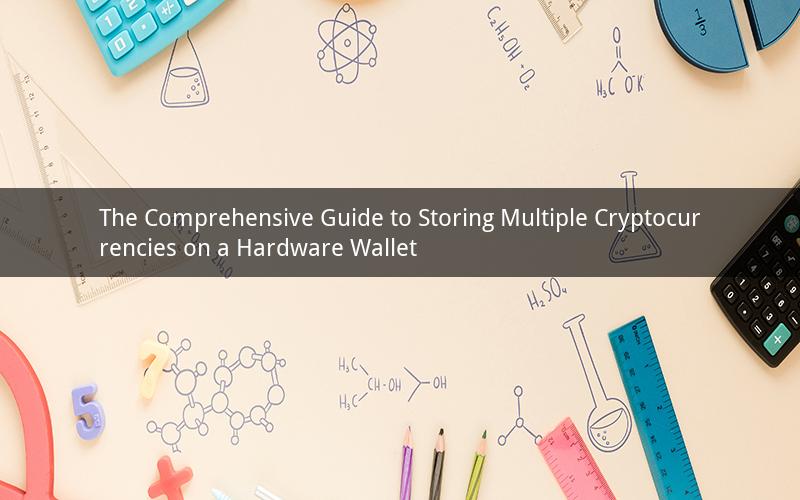
Introduction:
In the rapidly evolving world of cryptocurrencies, the need for secure storage solutions has become paramount. One such solution is the hardware wallet, which offers robust security features for storing digital assets. However, many users wonder if it is possible to store different cryptocurrencies on a single hardware wallet. This article delves into the intricacies of storing multiple cryptocurrencies on a hardware wallet, providing valuable insights and addressing common concerns.
1. What is a Hardware Wallet?
A hardware wallet is a physical device designed to store cryptocurrencies offline, thereby providing enhanced security against online threats such as hacking and phishing attacks. Unlike software wallets, which are digital and accessible through a computer or smartphone, hardware wallets store private keys in a secure, offline environment.
2. Can You Store Different Cryptocurrencies on a Hardware Wallet?
Yes, you can store multiple cryptocurrencies on a hardware wallet. Most hardware wallets support a wide range of digital assets, including Bitcoin, Ethereum, Litecoin, and various altcoins. However, the compatibility of a hardware wallet with different cryptocurrencies depends on the wallet's manufacturer and the specific model.
3. How to Store Multiple Cryptocurrencies on a Hardware Wallet
To store multiple cryptocurrencies on a hardware wallet, follow these steps:
a. Research and choose a hardware wallet that supports the cryptocurrencies you want to store. Ensure that the wallet has a good reputation and a strong track record of security.
b. Purchase the hardware wallet from a reputable vendor and set it up according to the manufacturer's instructions. This typically involves connecting the wallet to your computer, installing the necessary software, and creating a backup of your recovery seed.
c. Once your hardware wallet is set up, navigate to the wallet's interface and select the cryptocurrency you wish to add. Follow the on-screen instructions to generate a new address for that cryptocurrency.
d. Send the desired amount of cryptocurrency from your existing wallet to the new address generated by your hardware wallet. This process may take some time, depending on the network's transaction speed.
e. Repeat steps c and d for each cryptocurrency you want to store on your hardware wallet.
4. Pros and Cons of Storing Multiple Cryptocurrencies on a Hardware Wallet
a. Pros:
- Enhanced security: Hardware wallets provide offline storage, making them less susceptible to online threats.
- Easy to use: Many hardware wallets have user-friendly interfaces and straightforward setup processes.
- Support for multiple cryptocurrencies: You can store various digital assets on a single device, simplifying your cryptocurrency management.
b. Cons:
- Higher cost: Hardware wallets are generally more expensive than software wallets.
- Limited storage capacity: Some hardware wallets may have limited storage space, which could be a concern if you own a large number of cryptocurrencies.
- Limited access: You can only access your cryptocurrencies through the hardware wallet, which may be inconvenient if you need to frequently send or receive transactions.
5. Common Concerns and Solutions
a. Can I recover my cryptocurrencies if I lose my hardware wallet?
Yes, you can recover your cryptocurrencies by using your recovery seed. The recovery seed is a series of words that serves as a backup for your private keys. Make sure to keep your recovery seed in a secure and accessible location.
b. Can I transfer cryptocurrencies between hardware wallets?
Yes, you can transfer cryptocurrencies between hardware wallets by using your recovery seed. However, this process may vary depending on the wallet's manufacturer and model.
c. Can I store different versions of the same cryptocurrency on a hardware wallet?
Yes, you can store different versions of the same cryptocurrency, such as Bitcoin Cash (BCH) and Bitcoin (BTC), on a hardware wallet. Ensure that the wallet supports both versions and follow the same steps as outlined in section 3.
d. Can I store private keys from different wallets on the same hardware wallet?
No, it is not recommended to store private keys from different wallets on the same hardware wallet. This practice increases the risk of losing your entire cryptocurrency portfolio if the hardware wallet is compromised.
e. Can I use a hardware wallet to store non-cryptocurrency assets, such as NFTs?
While some hardware wallets may offer limited support for non-cryptocurrency assets like NFTs, it is generally not recommended. Hardware wallets are primarily designed for storing cryptocurrencies and may not provide the necessary security features for non-cryptocurrency assets.
Conclusion:
Storing multiple cryptocurrencies on a hardware wallet is a practical and secure solution for managing your digital assets. By following the steps outlined in this article, you can easily add various cryptocurrencies to your hardware wallet and enjoy enhanced security and convenience. Always research and choose a reputable hardware wallet that meets your needs, and keep your recovery seed in a secure location to ensure the safety of your cryptocurrencies.